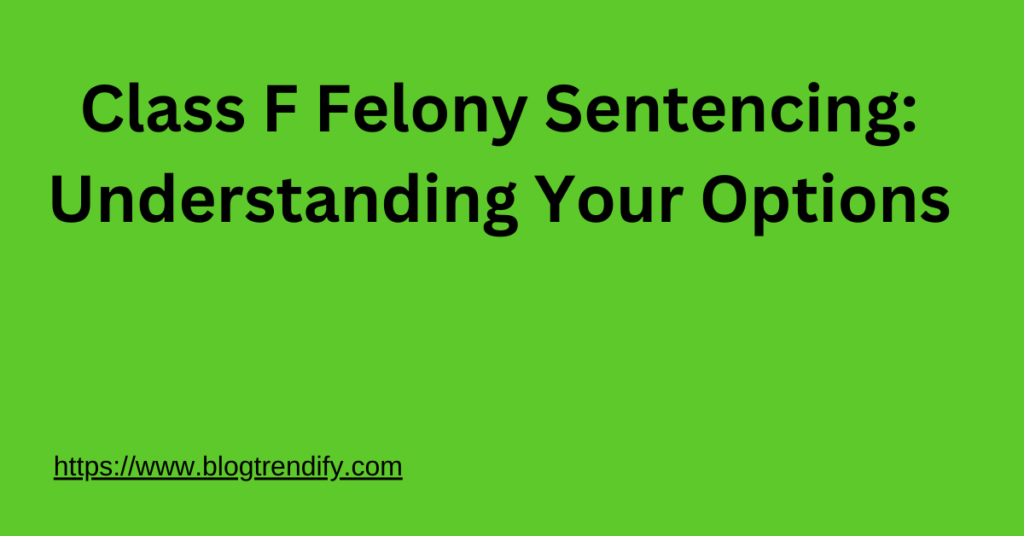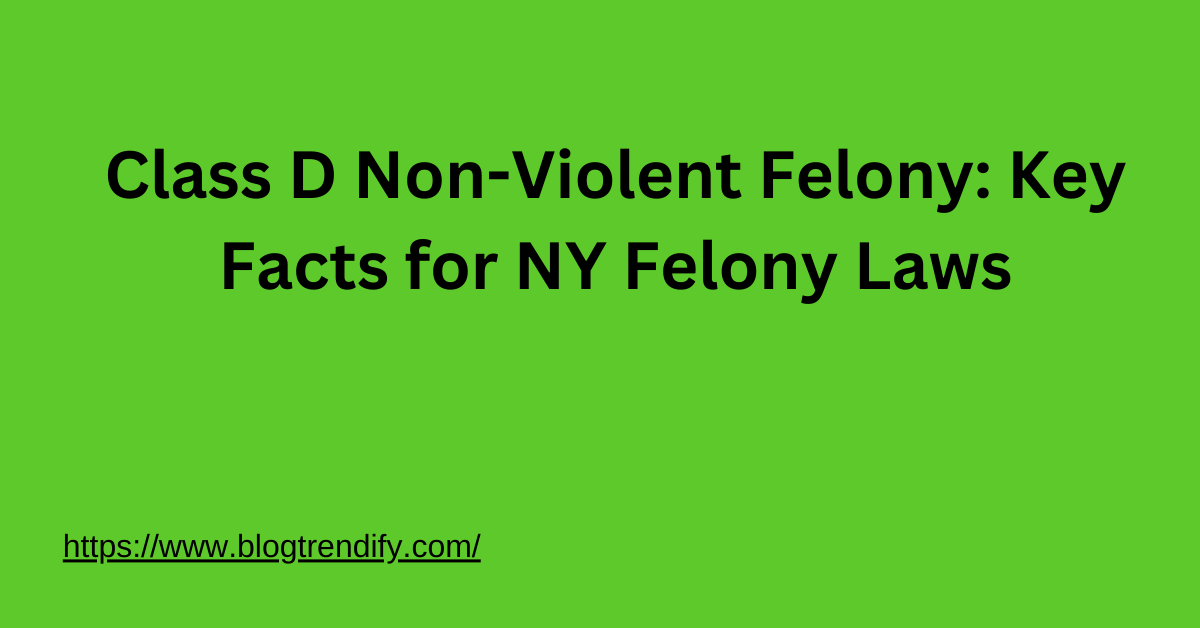Class F Felony Sentencing: Understanding Your Options
Table of Contents
Toggle1. Explore Class F felony sentencing options and understand your rights. Our comprehensive guide provides essential information for navigating the legal process effectively.
Facing a Class F felony charge can be overwhelming, but understanding your sentencing options is key to preparing for the road ahead. This guide explains Class F felony sentencing, potential penalties, and how to navigate the legal system to achieve the best possible outcome.
What is a Class F Felony?

Definition and Examples of Class F Felonies
A Class F felony is a mid-tier felony offense that typically involves significant harm to individuals or property. While less severe than Class A or B felonies, it carries considerable penalties.
Examples of Class F Felonies
- Aggravated assault or battery
- Theft of property above a specific value
- Certain drug-related offenses, such as trafficking
- Burglary involving weapons or violence
- Fraud or embezzlement of large sums
Severity of Class F Felony Charges
The severity of Class F felonies varies by jurisdiction. Some states categorize offenses differently, so understanding local laws is crucial.
Sentencing Guidelines for Class F Felonies
Determining Factors in Sentencing
The court considers several factors before imposing a sentence, including:
- Nature of the Crime: Violent crimes often lead to harsher penalties.
- Criminal History: Prior convictions can result in longer sentences.
- Circumstances of the Case: Aggravating factors, such as the use of a weapon, can increase penalties.
Standard Penalties for Class F Felonies
Incarceration
- Sentences typically range from 1 to 15 years in prison, depending on the crime and state laws.
- Repeat offenders may face enhanced penalties under “three strikes” laws.
Fines
- Financial penalties can range from $5,000 to $25,000 or more, depending on the offense.
Probation
- Some offenders may be eligible for probation instead of jail time, often with conditions like regular reporting, community service, or rehabilitation programs.
Alternatives to Traditional Sentencing
Plea Bargaining
A plea bargain allows defendants to plead guilty to a lesser charge in exchange for reduced penalties.
- Benefits: Avoids trial, reduces sentencing severity, and can result in misdemeanor charges instead of felony convictions.
- Drawbacks: Requires admitting guilt and may still involve penalties.
Diversion Programs
Some jurisdictions offer diversion programs for non-violent offenders.
- Examples: Substance abuse treatment, anger management, or educational programs.
- Outcome: Successful completion often results in charges being dropped or reduced.
Mitigating Factors That Can Reduce Sentencing
First-Time Offenders
Courts may be lenient with first-time offenders, especially for non-violent crimes, by offering reduced sentences or probation.
Demonstrating Remorse
Expressing genuine remorse and a willingness to change can influence the court’s decision during sentencing.
Community Support
Letters of recommendation from employers, family, or community leaders can showcase your character and support leniency.
Challenging Sentencing Decisions
Appealing a Sentence
If you believe your sentence was unfair or based on procedural errors, you can file an appeal.
- Requirements: Legal errors, insufficient evidence, or new evidence must be presented.
Motion for Sentence Modification
In some cases, you can request a reduction or adjustment to your sentence based on good behavior or rehabilitation progress.
Post-Sentencing Options
Expungement and Record Sealing
After serving your sentence, you may be eligible to have your record expunged or sealed.
- Benefits: Removes or limits public access to your criminal record, improving employment and housing opportunities.
Parole Eligibility
Parole allows early release from prison under strict conditions. Eligibility depends on the nature of the crime and the time served.
How to Navigate Sentencing with Confidence
Hire an Experienced Attorney
A skilled criminal defense attorney can help negotiate plea deals, present mitigating factors, and guide you through appeals if necessary.
Understand Your Rights
Knowing your rights ensures you can advocate for yourself during the legal process. For example:
- The right to a fair trial
- Protection against self-incrimination
- The right to legal representation
Conclusion
Class F felony sentencing involves serious consequences, but understanding your options can empower you to make informed decisions. By working with an experienced attorney, exploring plea bargains or diversion programs, and demonstrating good faith efforts to reform, you can navigate the process with confidence and potentially reduce the impact of your conviction.
FAQs
1. What is the average prison sentence for a Class F felony?
The average sentence ranges from 1 to 15 years, depending on the jurisdiction and circumstances of the case.
2. Can a Class F felony be reduced to a misdemeanor?
Yes, through plea bargaining or demonstrating mitigating factors, some Class F felonies may be downgraded to misdemeanors.
3. Are first-time offenders treated differently?
First-time offenders often receive lighter sentences, probation, or eligibility for diversion programs, especially for non-violent crimes.
4. Can I appeal a Class F felony sentence?
Yes, you can appeal if there were legal errors or if new evidence emerges that could affect the case outcome.
5. How can expungement help after a conviction?
Expungement removes the felony from public records, improving opportunities for employment, housing, and social reintegration.




